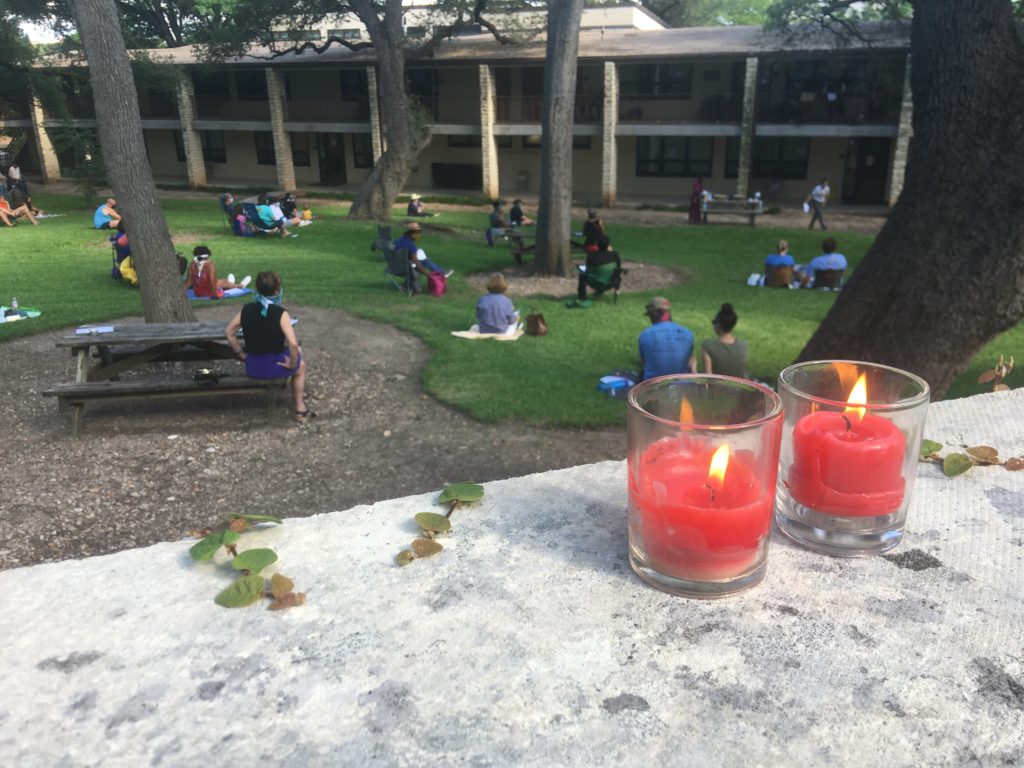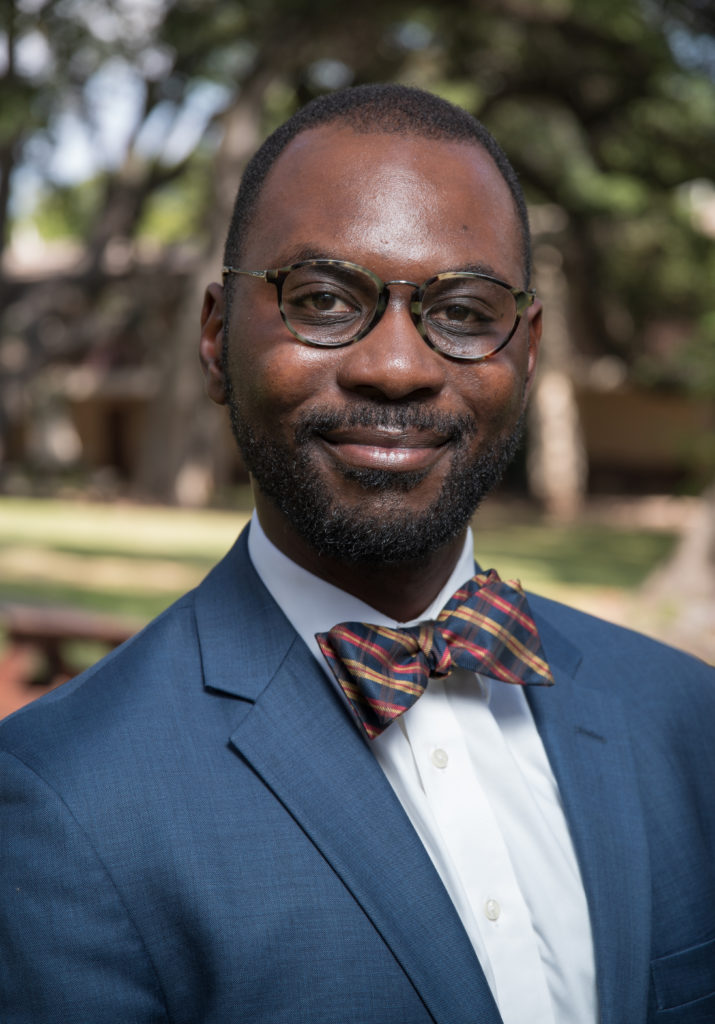
It was 7:17 PM on a Wednesday. For the first time in nearly two months, I was driving away from campus having seen (at an appropriate social distance) so many of my neighbors, colleagues and students participate in a vigil of hope, power, and social commitment. I felt strange because at that same time the evening before, I felt immobilized from the need to provide a response to questions and emails and texts regarding the thoughts of a mental health expert who happens to also be a Black male. And 24 hours before that, I listened in conversation with my parents processing the sounds of flashbangs, rubber bullets, and chants as frustration was met with force in front of a well-known Episcopal parish in Washington, DC. And one week before that, I pushed the red button on my phone’s screen, ending conversations with my White friends, simply not knowing how to explain the fear, the anger, the frustration within my young, Black, male body.
As I drove away from campus on that Wednesday, I reflected on my mother’s words, “Yes, this is a serious matter that is unfolding.”
I could not have said it better myself.
In my most honest words, I am tired. Not a tired from physical exertion (I’m too nervous to be another Black man running in the neighborhood) or from illness (who knows what kind of care my doctor could offer me with an overwhelmed medical system). My fatigue arises from what Ibram X. Kendi designates in his book, How to Be an Antiracist, as racist abuse. Much like our understanding of abuse of any kind, racist abuse is psychological, spiritual, and intergenerational. This cultural ache is the reverberation of my ancestor’s blood shrieking in anguish that their great great grandchild still sees the painful images of injustice that they hoped I would never see. This torture rattles me to know that my experience isn’t individual but collective. It is one that I share with Black, Latinx, Asian, and Indigenous students, staff, and community members who do not need much of an imagination to see themselves being the next big headline. They learn and listen within a system that would rather them be voiceless and martyred, than empowered and elevated for the sake of social change.
I share these words to emphasize the groaning in my soul. Black theologians have noted for decades about the African American community’s unique ability to tap into the power of pain and to turn it into a force for liberation and peace. This groan is a guttural, non-verbal response to the move of the Holy Spirit. Paul describes this experience as a mechanism for the Spirit’s intercession “in our weakness” (Romans 8:26-27) to speak where words feel inadequate. In the same way that intergenerational trauma filters down from parent to child, this groaning of the spirit remains a transmogrified force that echoes out across race, ethnic origin, color, or creed to invite the incredible hope and love of God into the presence of God’s people.
I hear the power of groaning within the Book of Lamentations. We read in the first few chapters of the despair of Israel, seeking continuously to repent and to atone for their sins against God. And yet in the midst, we hear these famous words, “Yet this I call to mind and therefore I have hope. Because of the Lord’s great love, we are not consumed, for his compassions never fail.” (Lam. 3:21-22). Here, I hear that deep set groan from an ethnic group so deeply rooted in hope that it forces them towards freedom.
In Black turmoil and with a lack of racist repentance, we are reminded that our continued existence is the result of the compassion and love of God. This love that is beyond our comprehension says that we must turn this pain and fear and hurt into movement, justice, and hope only through the knowledge of God’s love resting within us. Though many feel their bodies being consumed by unjust policies, brutal acts of violence, or inequitable access, we groan and move with Christ’s compassion to seek justice, love mercy and to walk humbly with God (Micah 6:8).
But the response to groaning may be different for each embodiment. For me, the response to my soul’s groaning was to mourn in community and to write down these thoughts. For others, it requires walking with raised hands and signs to create civil unrest while injustice breathes. Some need to be changing policy and putting it into place. Perhaps you have the power to shift institutional culture or to diversify the community and institutions for which you serve. Or maybe, your soul’s groaning simply pushes you to look inside to understand how you have been complicit in the narrative of Whiteness in America. Whatever keeps you up at night…whatever your groaning soul may sing… remember to not let the pain consume you into silence.
May your groaning spur you forward toward the holy work for which you are called.
What is the groaning of your spirit during this time of racial injustice?
How do you invite God’s voice to speak and move you in your daily ponderings?

Dr. Marlon Johnson is a licensed professional counselor with a focus on narrative and child-centered play therapy techniques. He completing his PhD in counselor education at the University of Tennessee, Knoxville in Fall, 2019. Johnson served as a 2018 doctoral fellow for the National Board of Certified Counselors and as the Tennessee Counseling Association’s NBCC Liaison. His research centers on recruitment experiences for African-American men into counseling programs, the intersectionality of LGBTQ identity and faith orientation, continuing multicultural counselor education, and college and career readiness in rural Appalachia.

